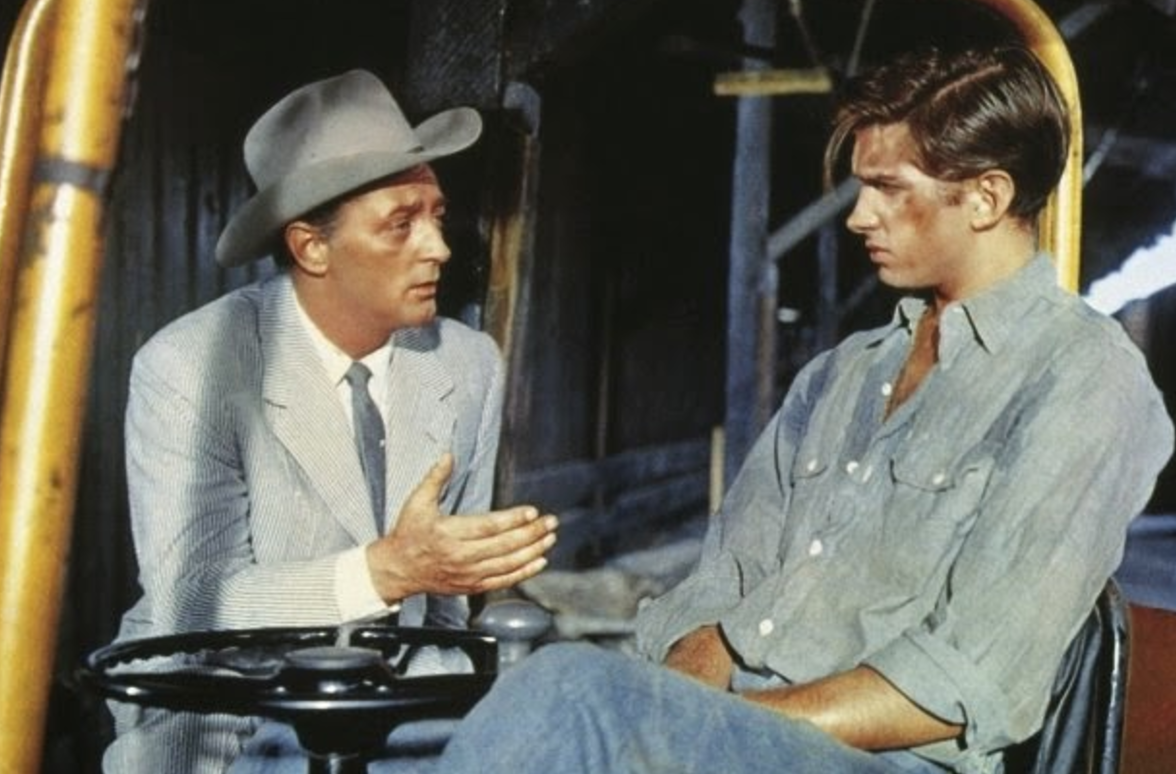The assignation of Vincente Minnelli to a film as melodramatic and father/son-centric as Home From the Hill seemed, at first, out of place in the rest of his work to the film’s lead, Robert Mitchum. After all, this was the same director who built a reputation for himself on the likes of musicals such as Ziegfeld Follies and An American in Paris, and comedies like Father of the Bride. He was, in short, an auteur mostly known for levity. But looking closer at his body of work before the 1960 release of Home From the Hill, it’s plain to see that Minnelli was already plenty seasoned in the dramatic, 1954’s The Long, Long Trailer starring Lucille Ball and Desi Arnaz and 1956’s Lust for Life starring Kirk Douglas being the most overt examples.
Using evermore appreciated in the present William Humphrey’s debut novel as his source material, Minnelli proves you don’t need to be from deep Texas to understand the complexities of the parent-child relationship. In Theron Hunnicutt’s (the perpetually tan George Hamilton) case, the issue stems from being overly sheltered by his mother, Hannah (Eleanor Parker), his entire life. In spite of being the son of “The Captain” Wade Hunnicutt–the richest man and most skilled hunter in town–Theron knows nothing of “being a man,” which is how he ends up getting duped by a group of layabout pranksters who bet each other that Theron won’t know there’s no such thing as snipe hunting. Thus, as he unsuspectingly walks in their direction, the group invites him to accompany them to go hunting, leaving him in the woods to blow a whistle for two hours until finally returning to collect him with Wade in tow. At the sight of his son crouched down in the grass, Wade regards him piteously, finally realizing it’s time to break the promise he made to Hannah seventeen years ago, which was never to interfere with raising him so as to protect him from the reputation of Wade, a notorious philanderer–evidenced in the first scene when the husband of a woman he’s slept with seeks him out in the woods and shoots him, his righthand man, Rafe (George Peppard), coming to his aid in the (bullet) nick of time.
As Rafe drives Wade back from the doctor’s office, the rapport between them is clearly a deep and rich one, with Wade reminding him that he has everything he needs right here. Rafe assents, though clearly there’s something else he wants from Wade on his mind. As Theron persists in his hunting practice, he soon drops out of school, causing further contention between Wade and Hannah, who purposely told the school Theron wouldn’t be coming back just to goad Wade. As the two parents undercuttingly war with one another on how to raise their son, the effects it seems to have on Theron are stewing somewhere within, still recessed enough for him to succumb to the love he has for his now former schoolmate, Libby Halstead (Luana Patten). His pursuit of her comes at a time when he’s at last mastered hunting, the culmination of this mastery being his ability to shoot and kill a wild boar. The problem is, talking to a girl seems scarier to him than any wild boar ever could be, thus his enlisting of Rafe, by now more than just a mentor, but a valued friend. Libby is at first miffed by Theron’s need to send a mouthpiece, but accepts the invitation to come to a dance at his house based on Rafe’s charm, foreshadowing for what’s to come, and the many instances of each character not being fully aware of all the concealed information that might drive their decisions in a different direction.
While Theron continues to assert his independence by spending more time with Libby, the rift between Wade and Hannah only intensifies as both infect the house with their contempt for one another. It is because of this that the long dormant imprint of negativity prompts Theron to tell Libby that he never wants to get married or have kids, never tear anyone apart the way his parents have done to him–and this at a time when she’s just discovered she’s pregnant with his child. And yet, not wanting to wrangle him just for this reason and then have him resent her for it, she keeps it to herself, sending her into the arms of Rafe, the nexus for every plot point’s source of dramatic irony. The things the viewer knows and wants to scream to each character in Home From the Hill is, of course, the mark of a truly great and engaging film.
Incidentally, the intro to the movie features the Robert Louis Stevenson quote: “Home is the sailor, home from the Sea. And the hunter, home from the hill.” Rafe, the bastard child/wanderer by proxy to this station in life, turns out to find his home more than anyone–perhaps the most prime example of all of screenwriters Harriet Frank Jr. and Irving Ravetch’s dexterous use of irony in the film.




















